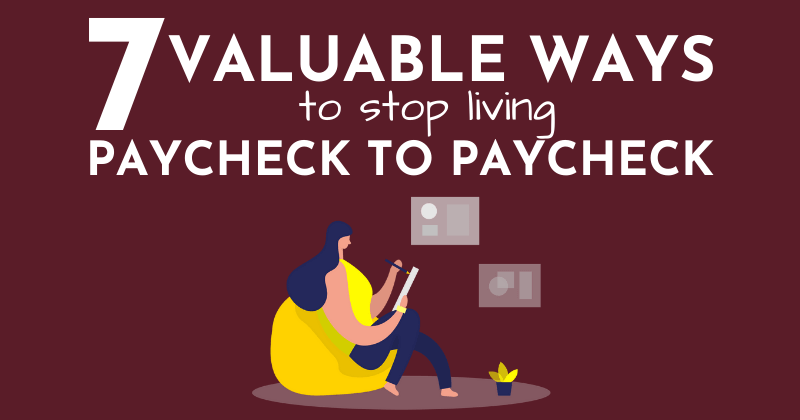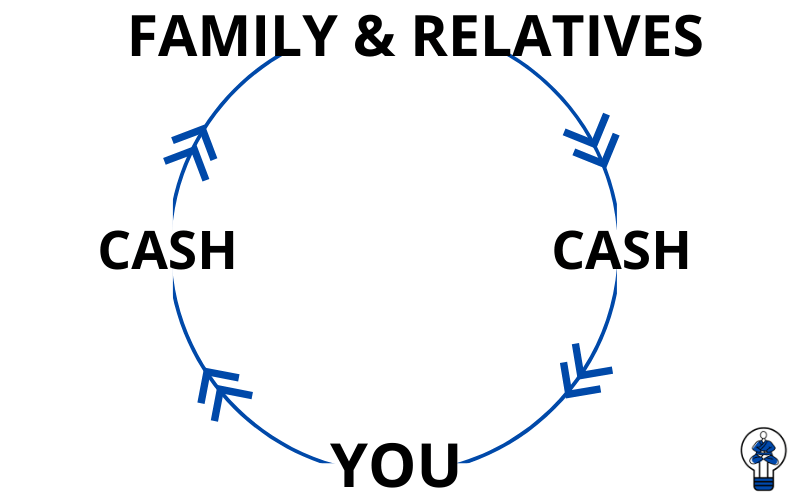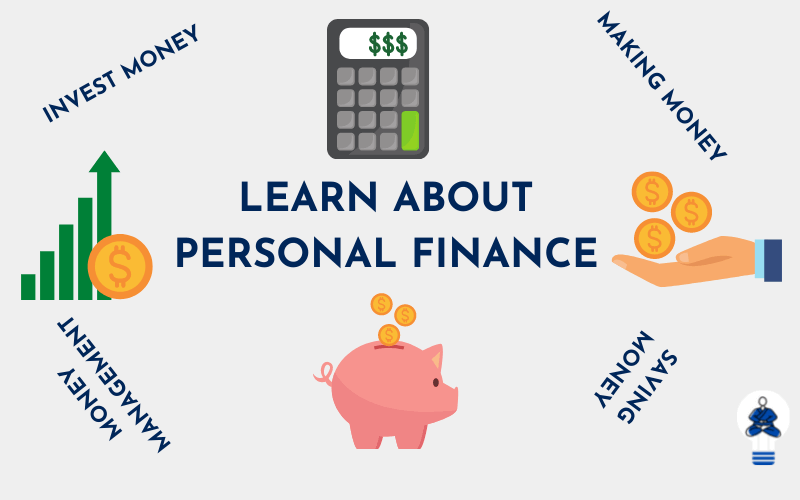7 Valuable Ways to Stop Living Paycheck to Paycheck

This article may contain affiliate links. If you make a purchase using my links, I’ll earn a small commission at no extra cost to you. I appreciate your support!
Hang on, I’m sure after reading this article, your bank account will have a lot saved! Stop living paycheck to paycheck by implementing these 7 Valuable steps.
Many people don’t believe in the fact about paycheck to paycheck. They think every individual is sage enough to have at least some savings at all times. Unfortunately, we aren’t living in 1990 when money was given that much importance.
Today people don’t think before they spend. They just spend! Like yesterday my friend spent his parent’s money and bought a new pair of Adidas shoes even though he has 3 other pairs. Wow! Talk about savings and financial education.
Living paycheck to paycheck, on the edge, is tough, so how can we avoid this? Let’s find out by reading the article.
How To Stop Living Paycheck to Paycheck
1. Stop Being Dependent on Your Family
If you still depend on your mom, dad, or relatives to take care of your house budget, your monthly payments towards loans or to lend you money to get out of debt or even to pay for your investments in the stock market, you are being ill-treated.
This way you’ll never learn how to take care of your money. You’ll never be able to have enough money and you’ll end up in a cycle where you borrow money from your close ones time and again.
Learn to be independent, that will solve 84% of your problems, the rest will be solved as you learn about finances in time.

The solution: Pay off all outstanding money that you owe to your parents. Then sit with them, your spouse, and come up with an effective strategy to tackle this problem.
I’m sure your parents will have a great solution as they too at one point did not know about their finances.
2. Tax Savings Through Smart Investments
If you’re an employee, you’re being taxed heavily. But did you know you could reduce your taxes and save more money? Usually, the employer releases your salary, the government cuts taxes, and then you get the remaining.
There’s a trick to save more and pay less in taxes. In India, under Section 80C, you are eligible to invest Rs 1,50,000 in certain investments per year and this amount will be deductible from your income, thus tax will be applied to the income after investing.
Chances are you have a Provident Fund account already made for you by your employer, other than that investments like Tax-free FDs, ELSS, ULIP, NSC, NPS, and Post Office Savings Scheme are great Investment options for you to save on extra money every year.
If you’ve taken a loan for a house recently, you are eligible for deductions for stamp duty and registration charges under Section 80C. There are a lot more deductions that you can avail.
For this, I advise you to meet up with your financial advisor or an accountant, they’ll guide you properly. Don’t take this lightly as the amount you can save is enormous.
For people outside India, check out your tax benefits and deductions you can get and save all you can.
3. Protect Your Future With Health and Life Insurance
If you think that in your 30s and 40s, you don’t need an insurance plan, you’re wrong. I mean I know you know you’re wrong but do you know you’re wrong? – This line does make sense!
If there’s one thing COVID-19 has taught us is that you can’t predict what might happen when and an insurance policy to take care of you is as essential as drinking water (if not more).
There are two types of insurance you need to make to secure your and your loved one future. The first one is Health Insurance to take good care of your health and the second one is Life Insurance to take care of your loved ones, especially if you’re the sole breadwinner of your family.
4. Cultivate Financial Awareness
To spend money on an item, you need to pay through your wallet or phone right? Today, spending has become such a normal thing to do that we swipe our cards without even thinking why we bought that item.
Did we need it? Or did we just buy it because we were passing through the store? Or because a friend recommended that you try that item?
Whatever the reason be, it all boils down to you and me being unaware of when we spend our precious money. Do you have a money tree in your backyard? If yes, you don’t need to be aware of spending.
As for others, live more in the moment as every time you are going to make a purchase, think and ask yourself if that item will satisfy a deep need. Only one individual is getting rich every time you buy a new something and that’s not You!
5. Master Budgeting With 50/30/20 Rule
If I meet you on the street and you ask me, “Rylan, How should I budget my income and expenses each month?” I would probably explain to you The 50/30/20 Budgeting Rule.
50 for necessities, 30 for leisure, and 20 for savings. It’s the simplest, most practical, and logical way to budget your finances.
I mean it can’t get any easier. I know I say that 5% on wants is necessary if you want to achieve financial independence but this rule isn’t a formula to achieve that, it’s the rule for simple budgeting.
Even though you have 30% for leisure, try to minimize this to 20% or even 10%, definitely don’t exceed 30%.
Note: If you have debt, I suggest you use your savings and leisure amount (20+30=50%) to pay off all debt.
Also, try to fit in your necessities in 50%, many get it done in 40% while a few may need 60%. Write down all your necessities and see where you can cut some expenses and bring them down to 50%.
I’ve written a detailed article on this, read it to understand the budgeting formula properly. Here’s the article!
6. Establish a Rainy Day Account
You’ve probably heard me say a billion times that an emergency fund is a must if you are a working professional. We’ll a rainy day account isn’t an emergency fund but it has a similar concept.
A Rainy Day account is made to pay for all your small expenses, the petty ones. For example, let’s say your phone screen was repaired or your washing machine suddenly stopped working.
Don’t confuse it with an emergency fund, the purpose of an emergency fund is extreme problems like the loss of a job, a major illness, or a financial crisis like such.
A Rainy Day account is for those sudden petty expenses that you weren’t prepared for. As for how much your account should have depended on your living conditions.
Even then I’d say 2 months of expenses initially will do good. Don’t forget to keep your rainy day account liquid, meaning it should be accessible on the go.
7. Invest in Your Financial IQ

Did you know that having a side hustle can make you 3 times more money than investing in stocks in the long term?
I don’t know how smart you are but most people I know focus more on investing in shares and other investments instead of making more money through side hustles and part-time jobs.
They spend all their time looking at stock prices to only make 10-15% (maybe 20% if they’re lucky). So why don’t they spend their time starting a side hustle or doing a part-time job?
They don’t know – yeah it simply causes them don’t know. Don’t know something – Google it up. Want to learn How to Make Money – Google
The Best Ways to Make Money and you’ll find so many ways you can do that. There are so many Digital Marketing seminars you can attend if that’s what you want to learn.
Sage Tip: The more questions you ask yourself and others, the more answers you’ll get which will improve your IQ.
If you read books, attend seminars and webinars, and speak to like-minded individuals, I’m sure your knowledge will expand and you will learn so many tips and tricks about personal finance, budgeting, making, saving, and investing money that will put you on track to be financially independent faster than ever.
Take Charge of Your Financial Journey
Even though it’s obvious that you need to earn money. Then you need to save money and not spend aimlessly on expensive things just because your friends are buying, yes it’s obvious but we do it anyway!
Then you also need to invest and take care of yourself as well as your family. Yes, financial education is necessary and most people believe they have the common sense when it comes to finances but in reality, they don’t.
Those same people who say they know about personal finance go to Gucci later that day to buy expensive clothes for fun or because their friends buy Gucci. Then you run into debt because you have no money.
And then you wonder why you always live paycheck to paycheck, where does all your money flow? You’re never going to get out of this crazy cycle unless you set your mind straight.
Today, take a stand and decide that you’re going to be free of all financial problems (e.g. – impulsive buying) and work towards it till you can’t see results.
What do you do to ensure you don’t live paycheck to paycheck? Let me know in the comments! If I like a strategy and I haven’t covered it in any other article before, I’ll add it to this one!
Have you enjoyed this post? If so, you might want to subscribe to my newsletter. It usually contains life lessons and money-related topics, some interesting observations, links to articles or books I’ve read, and tips to be a better person. If you’re interested in these things then subscribing will be simply wonderful 🙂 PS: Subscribe and Get your Freebie below!
Also, I’m a YouTuber now! If you’re interested in Pinterest Marketing, Blogging, or business-related things, Subscribe to my Channel and I’ll see you in the comments!